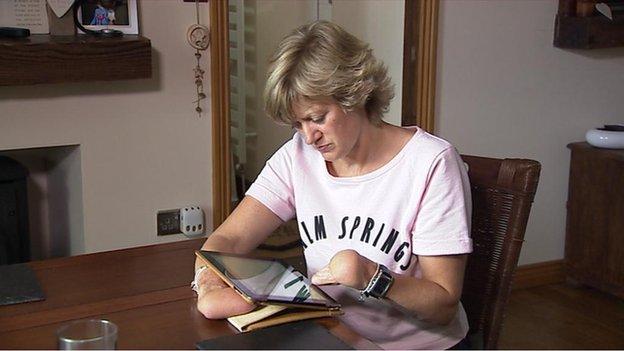Hand transplants to be offered to UK patients on NHS
- Published
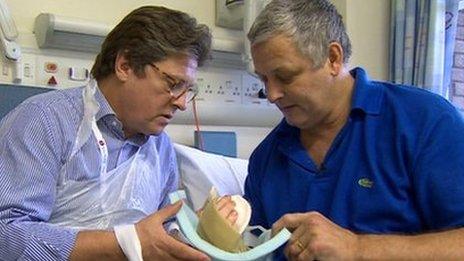
Mark Cahill (R) was the first person in the UK to have the operation
Patients across the UK will be able to have hand transplants on the NHS, health officials have said.
Leeds Teaching Hospitals NHS Trust will begin assessing suitable adult candidates and performing the "highly complex procedure" from April.
Hand transplants offer patients the only method of reconstruction that looks and functions like a normal hand.
If transplanted successfully, a new hand will be able to sense its surroundings and heal itself when hurt.
'Warm to touch'
The patient will also be able to move it with dexterity and it will feel warm to the touch.
The centre in Leeds is headed up by consultant plastic surgeon Prof Simon Kay, who successfully performed the UK's first hand transplant in 2012.
"We are delighted to be confirmed as the provider of this new service," he said.
"The team here at Leeds is keen to now assess new patient referrals and benefit patients and their families in a way they may never have thought possible before."
'Life transformed'
Former pub landlord Mark Cahill from West Yorkshire was the first person in the UK to have the operation.
Mr Cahill had been unable to use his right hand after it was affected by gout. His operation was carried out on the NHS but under different commissioning rules, which were subsequently changed months after his operation.
Since the transplant, he has started regaining almost complete use of his hand - allowing him to carry out tasks such as tying his shoelaces, carrying his granddaughter and driving a car.
He said: "My experience as a patient and my quality of life since the hand transplant has been fantastic. It really has transformed my life."
He also said he wanted to publicly thank his donor.

Hand transplant facts

Recipients will retain the fingerprints of their donors
The operation typically takes between six and 12 hours, depending on the complexity of the individual case
Patients have to go through extensive psychotherapy screening before an operation takes place
The limb must match the recipient patient in terms of their blood type, immunology, arm size and skin tone
When a suitable donor limb is found, time is of the essence, and the patient is prepared for surgery immediately
Transplants may be performed at the level of the hand, forearm, or upper arm and on one or both arms
The procedure involves four teams of surgeons working simultaneously and starts by identifying and matching anatomical structures in both the right and left arms of the donor and recipient limbs
The two bones in the upper arm are then attached to each other with titanium plates and screws
After the bones are attached, surgeons connect key tendons and muscles
Then, using operating microscopes, the surgeons connect key blood vessels - including the two main arteries in the upper arm - to ensure that blood is able to flow into and out of the new limb as soon as possible
Once blood is circulating to the limb, the remaining nerves, tendons and muscles are attached, before the team finally close the skin

Dr Jonathan Fielden, NHS England's director of specialised commissioning, described hand transplants as "cutting edge procedure", which had been shown to "significantly improve the quality of life for patients who meet the strict criteria".
He said: "We will be working closely with Prof Kay and his colleagues at Leeds, as well as NHS Blood and Transplant, to ensure that this highly innovative service for the NHS can get up and running as soon as possible."
About 80 hand transplants have been performed worldwide.
Experts say success rates are high provided patients are selected carefully and fully-prepared psychologically.
After the operation, patients need to take lifelong medication to stop limbs being rejected by the body and follow daily physiotherapy routines.
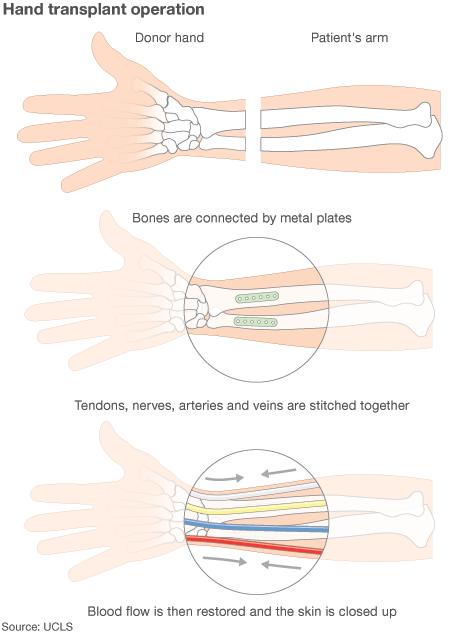
Meanwhile, Corrine Hutton is to become the first person in the UK to have a double hand transplant.
She has been waiting for a suitable match for the past year-and-a-half.
Ms Hutton had her hands and feet amputated last summer after a pneumonia infection led to blood poisoning.
- Published4 January 2013
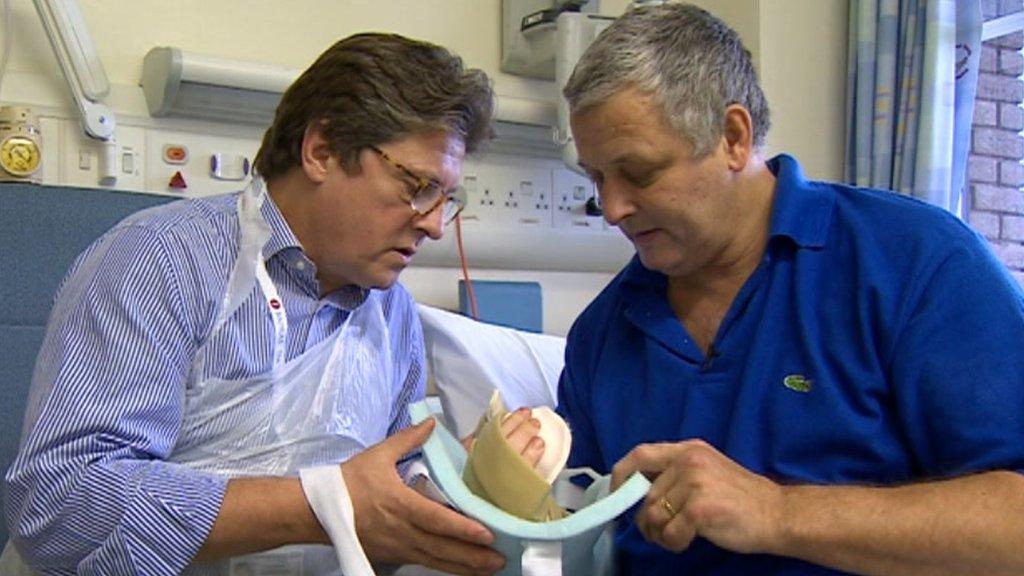
- Published29 July 2015
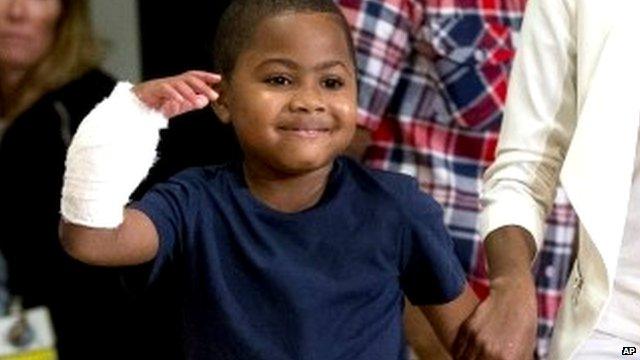
- Published25 June 2014
